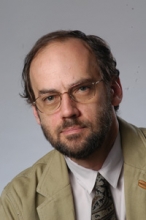EECS Seminar: The Internet of Important Things

Abstract: Cyberphysical systems are integrations of computation, communication networks and physical dynamics. Applications include manufacturing, transportation, energy production and distribution, biomedical, smart buildings and military systems, to name a few. Increasingly, such systems leverage Internet technology, despite a significant mismatch in technical objectives. A major challenge today is to make this technology reliable, predictable, and controllable enough for "important" things, such as safety-critical and mission-critical systems. In this talk, I will analyze how emerging technologies can translate into better models and better engineering methods for this evolving Internet of important things.
Biography: Edward A. Lee is the Robert S. Pepper Distinguished Professor in the Electrical Engineering and Computer Sciences (EECS) department at UC Berkeley. His research interests center on design, modeling and analysis of embedded, real-time computational systems. He is the director of the nine-university TerraSwarm Research Center (http://terraswarm.org), a director of Chess, the Berkeley Center for Hybrid and Embedded Software Systems, and the director of the Berkeley Ptolemy project. From 2005 to 2008, he served as chair of the EE Division and then chair of the EECS department at UC Berkeley. Lee is the co-author of six books and hundreds of papers. He has led the development of several influential open-source software packages, notably Ptolemy and its various spinoffs. He received a bachelor's degree in computer science from Yale University in 1979, a master's degree in EECS from the Massachusetts Institute of Technology (MIT) in 1981, and a doctorate in EECS from UC Berkeley in 1986. From 1979 to 1982, he was a member of the technical staff at Bell Telephone Laboratories in Holmdel, New Jersey, in the Advanced Data Communications Laboratory. He is a co-founder of BDTI, Inc., where he is currently a senior technical advisor, and has consulted for a number of other companies. He is a Fellow of the IEEE, was an NSF Presidential Young Investigator, and won the 1997 Frederick Emmons Terman Award for Engineering Education.
Share
Upcoming Events
-
CEE Ph.D. Defense Announcement: Release, Transport and Fate of Per- and Polyfluoroalkyl Substances (PFAS) in Urban Watersheds
-
MSE 298 Seminar: Mechano-Electrochemical Phenomena at Ceramic Electrolyte Interfaces
-
MSE 298 Seminar: Innovation In Materials Science - An Industrial R&D Perspective
-
MSE 298 Seminar: Understanding the Impact of Grain Boundary Inclination on Grain Growth Using Modeling and Simulation and Experiments
-
EECS Seminar: Mixed Conductors for Bioelectronics
